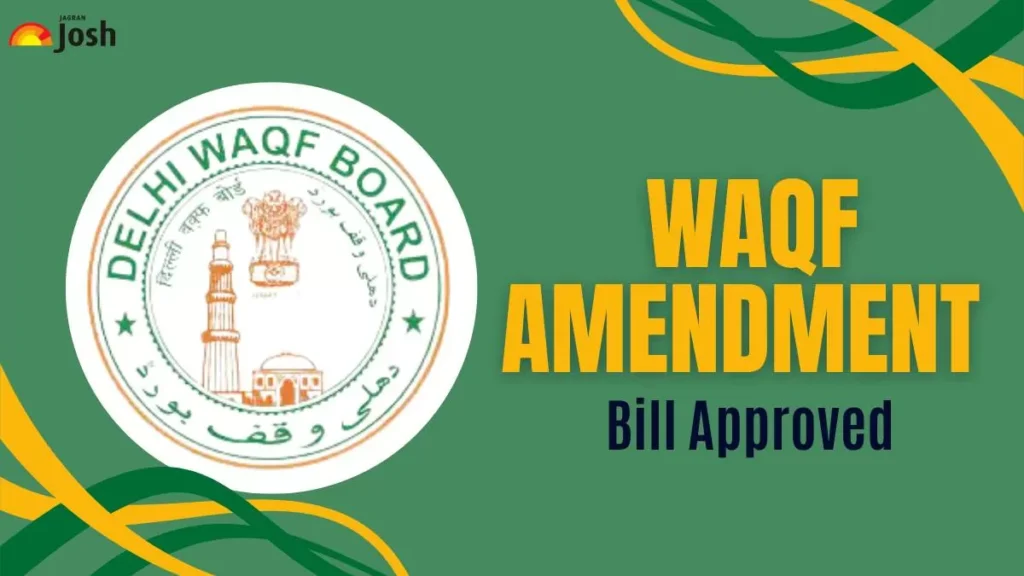The Waqf Amendment Bill, which proposes significant revisions to the management of waqf properties in India, has taken a major step forward. On January, the Joint Parliamentary Committee (JPC) approved 14 key amendments to the bill, setting the stage for a transformative approach to waqf governance. However, this development has sparked intense debate, with sharp divisions between the ruling party and the opposition.

Key Changes Endorsed by the JPC
The JPC’s approval introduces several pivotal changes to the Waqf Act, including provisions to:
- Include non-Muslim members in waqf councils.
- Revise rules governing property designations to ensure transparency.
- Exclude retrospective application of the law on previously registered properties.
- Require donors of waqf land to demonstrate adherence to Islam for at least five years, addressing concerns about fraudulent property dedications.
The 14 accepted amendments were part of 23 proposals submitted by BJP members and allies, while all 44 proposals from opposition MPs were rejected during a vote split along party lines (16 votes to 10).
Controversies Surrounding the Bill
The amendments have drawn strong criticism from opposition parties and minority leaders. Critics, including AIMIM chief Asaduddin Owaisi and DMK MP Kanimozhi, have described the bill as a “direct attack on religious freedom”. They argue that certain provisions violate constitutional rights, such as Article 15, which ensures freedom of religion, and Article 30, which protects minority communities’ rights to manage their institutions.
Congress leader Imran Masood highlighted concerns about excluding retrospective application, noting that “90% of waqf properties remain unregistered”. This exclusion, he argues, could leave many properties unprotected under the new law.
Opposition Accusations of Bias
Opposition MPs have alleged bias in the JPC’s decision-making process. Many meetings reportedly ended in chaos, with opposition members accusing JPC Chair Jagadambika Pal of favoring the ruling party. Last week, opposition leaders wrote to Lok Sabha Speaker Om Birla, alleging attempts to “steamroll” the bill for political gains ahead of the February 5 Delhi election.
Additionally, the suspension of 10 opposition MPs has further fueled tensions. These MPs claim they were denied adequate time to review the proposed amendments.
A Glimpse into the Amendments’ Goals
Proponents of the bill argue that the amendments aim to modernize waqf management and ensure fairness. BJP MP Aparajita Sarangi defended the changes, stating that the bill seeks to empower Muslim women who faced challenges under the previous law. She also emphasized that the JPC gave ample time for members to suggest modifications.
Next Steps for the Bill
The JPC is scheduled to confirm the amendments on January 29, with the final report set to be submitted by January 31. Initially, the committee was expected to file its report by November 29, but the deadline was extended to February 13, the final day of the Budget Session.
A Historical Context
The Waqf Act, enacted in 1995 and last amended in 2013, regulates properties donated as waqf for charitable or religious purposes. The new amendments aim to address issues of transparency and inclusivity while balancing modern governance with traditional values. However, the debates surrounding these changes underscore the challenges of navigating such reforms in a diverse democracy.
Conclusion
The Waqf Amendment Bill, with its 14 approved changes, marks a significant shift in how waqf properties are managed in India. While its supporters highlight its potential to empower communities and modernize governance, opposition voices warn of its possible implications on constitutional rights and minority autonomy. As the bill moves forward, it remains to be seen how these changes will shape the future of waqf management in the country.
